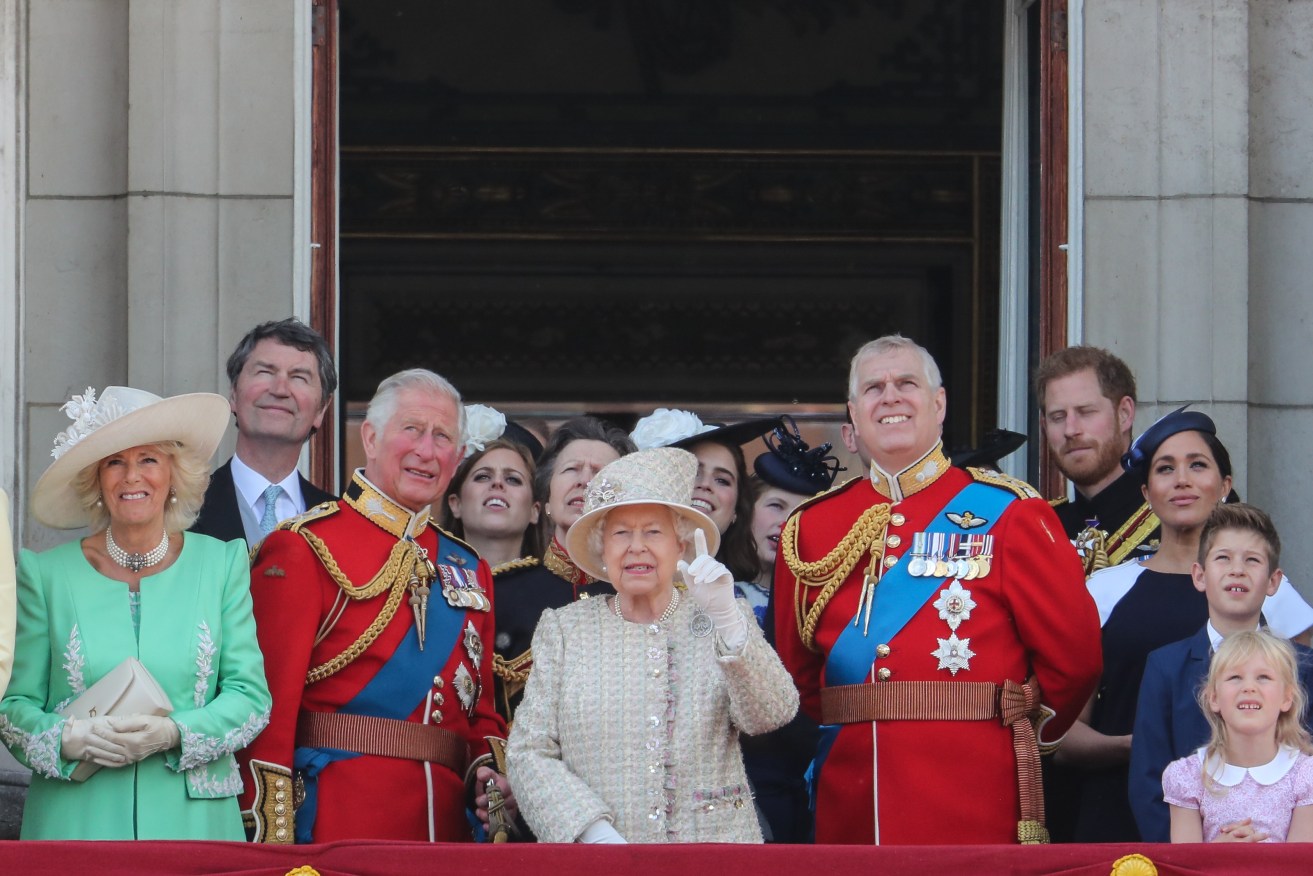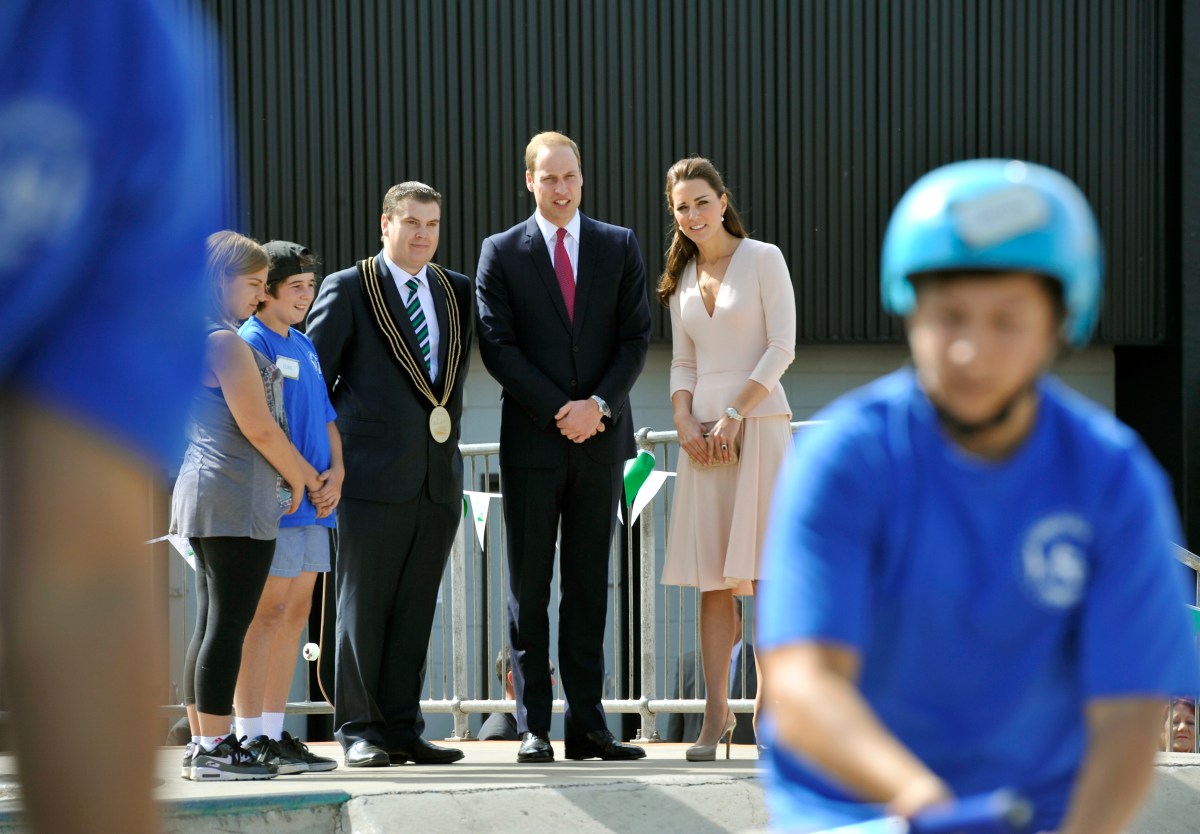The Crown: weird, cruel, vacant, effective
The Monarchy is absurd – a concept full of weirdness. And that’s precisely why it works, writes Adelaide lawyer Samuel Joyce.


The Queen flanked by Prince Charles and Prince Andrew at this year's Queen's birthday parade. Photo: John Rainford/Cover Images
The other week I was in court, fending off submissions from the other side that strained reality. It felt like each side was reading a different transcript of what happened in the court below. We were complaining about serious and obvious errors that occurred in what were the most unorthodox of proceedings. Somehow the other side didn’t think there were any issues and that the whole proceedings were completely orthodox.
My leader described the other side’s submissions about how there was nothing to see as “the Prince Andrew Submission”… wasn’t there, didn’t happen, nothing to see here. That comment showed just how much damage the Queen’s, otherwise irrelevant, third child has done.
There is no doubt that the monarchy is in serious trouble. The Queen, rightly revered, is now very old and slowing down. The heir is deeply unpopular, but at least he is interesting. The heir’s heir is totally boring and uninspiring, in a different sense than his boring grandmother. Next to chain-smoking, infinitely interesting and operatic Queen of Denmark, our queen is the dowdy spinster next door. And her family is, like in the 1990s, chaotic once more.
Malcolm Turnbull was right to say that it is absurd that members of the Australian Parliament were disqualified for holding citizenships they did not know they held, while at the same time our head of state is resident in, and rules over, a country that our High Court has held is a foreign power.
One wonders why we are prepared to continue to tolerate being ruled by a family whose pattern of behaviour would, if they were an ordinary elected politician, have finished their career in disgrace decades ago. One doesn’t have to be heartless to make such remarks; what a sordid and cruel life it would be to be Andrew, to spend a life in the shadow of your parents and brother, unable to work and to be completely irrelevant, only to become relevant for the purpose of disgracing your family and the institution of which it comprises. It’s darkly ironic.
As a result of our constitutional arrangements, it is essential to have a person as head of state who, while in theory runs the show, in practice does nothing.
The above criticisms are fine as far as they go, but the conclusion that we should abolish the monarchy and become a republic does not follow and ignores the most crucial and more ironic fact. That fact is that the monarchy is a seriously weird institution and, perversely, it is precisely that that is its greatest strength.
The monarchy is more than the people who from time to time comprise it. The Queen is best described as an idea. It doesn’t really matter who is on the throne, so long as they are so innocuous that they become a blank canvas upon which we can project whatever we like, and that in that process the heavy head that wears the crown perfects the art of doing nothing. The Queen’s reign has been so successful precisely because she is so unknown and unknowable to her subjects – such that she is a vehicle for whatever we want to project on her. This is a person who does nothing seriously well.
The same principle applies to her legal status. The Sovereign’s status is replete with legal fictions. Befitting the institution, most of them are also seriously weird. She owns all the swans on the Torrens, and the whales who breed off the bight. She is the third element of our Parliament, and must assent all the laws it passes. She appoints, and can sack, the democratically-elected Premier. She does it through the Governor, who, of course, would never decline to assent to laws passed by the democratically elected Parliament, but the laws are deemed to be hers.
Ghostlike, she is deemed to be present in Parliament and in the courtroom every time the Supreme Court sits. She doesn’t need a drivers’ license, nor a passport, because these documents are issued in her name. It’s she who declares war. She doesn’t do any of that, of course, and it’s all completely absurd. But it works and it works seriously well, precisely because she doesn’t try to exercise the enormous power that in law she is deemed to have.
The fact that is missed in the republican debate is that, as the above examples show, the inactive Sovereign is essential to our democratic constitutional arrangements. That’s why it is difficult to see what a republic would actually look like. As a result of our constitutional arrangements, it is essential to have a person as head of state who, while in theory runs the show, in practice does nothing. That is precisely why the system works.

Prince William and his wife Kate, the Duchess of Cambridge,in Adelaide in 2014. Photo: AP/David Mariuz
Once this is appreciated, the question of what a republic looks like becomes infinitely more difficult to answer. Indoctrinated by American culture, the word “President” is intimately connected with the concept of direct election. We elect people to do things, and we decide who to elect based on what they say they’ll do.
But why would we elect a person to do nothing?
How do we choose between competing candidates when they are standing for an office that requires inaction?
And once a person is elected, the inescapable fact is they have a mandate to do things, which is incompatible with the role. Even if we elect a person who doesn’t stand with an agenda, we expect them to act consistently with the public persona we have come to know. That was half of Malcolm Turnbull’s problem. Why, we will ask, is the person who we have elected because they acted in a consistent way, now not acting? It doesn’t work.
But as Sir John Kerr showed, the office of Head of State is undemocratic and, at least in theory, ultimately very powerful. Every legal act they do has profound consequences. For that reason, direct election of a President under the current constitutional arrangements is particularly dangerous precisely because with democracy comes a mandate, and the role of head of state under our system is not suited to that concept. It can’t be forgotten that in 1975, the Queen did what she does best during the biggest constitution crisis this country has ever faced: nothing, even though she was asked to act. Would we tolerate that from an elected President ? I don’t think so.
It’s almost impossible to criticise Her Majesty, precisely because she does nothing.
That leaves two alternatives. Either completely change our constitution to mirror that of the United States, which would be a terrible idea in a country whose constitutional arrangements have produced a nation that is perhaps the most stable the world has ever seen. Or, to appoint a President who has the powers of the Monarch, as has our current Governor-General. But that would be to let the Government choose the monarch, and that is the proposal that was rejected by the Australian people in 1999. I think that’s unlikely to pass the next time, precisely because the office of a President is inextricably tied to ideas of democracy and an elected office.
All of this might be thought to be pretty unsatisfactory. And it probably is. But the inescapable conclusion is that the institution of the Monarchy – weird, cruel and inapt to modern Australian values of egalitarianism and democracy as it is – remains, ironically, the best protection for those values that we have.
The scandal of Prince Andrew will fade. The Queen will soon die, and when her coffin lies in state we’ll all become monarchists again. It’s almost impossible to criticise Her Majesty, precisely because she does nothing. The less you do, the less there is to criticise. But she always turns up, and that is the key.
Charles’ reign will be short. William’s will be longer and equally boring, but safe. They’ll both do nothing well. And soon we will have a new generation of young royals over which to fawn. They’ll all turn up, and do nothing too, and we’ll eat it up.
So let’s pity Andrew, retire him to Frogmore, and not let an irrelevant and pitiful person lead to changes that would wreck our democracy that works so well.
Samuel Joyce is a senior associate at Adelaide law firm Tindall Gask Bentley, working in the fields of criminal and administrative law.
Want to comment?
Send us an email, making it clear which story you’re commenting on and including your full name (required for publication) and phone number (only for verification purposes). Please put “Reader views” in the subject.
We’ll publish the best comments in a regular “Reader Views” post. Your comments can be brief, or we can accept up to 350 words, or thereabouts.
InDaily has changed the way we receive comments. Go here for an explanation.




